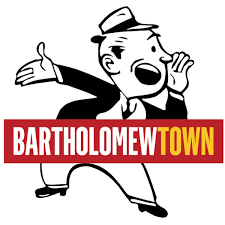
Bill Bartholomew is host of The Bartholomewtown podcast and frequent Motif contributor. As the coronavirus crisis has unfolded, he’s stood shoulder-to-shoulder with other Motif reporters and independent journalists at Governor Raimondo’s daily press conferences (at least until the governor required reporters to stand 3 feet apart). We recently talked to him about the role of independent media during this unprecedented crisis. The interview has been lightly edited for length and clarity.
Emily Olson (Motif): Why do you think independent journalism is important in a crisis?
Bill Bartholomew: Independent journalists provide a voice that filters information, but also looks a little deeper than that. This is a bizarre and new thing in life. I know a lot of the journalists [at the press conferences] already, and I’m certainly feeling this experience with them.
EO: What do you offer that’s different from what the mainstream media offers?
BB: It probably has to do with not so much independent versus mainstream, but with the old guard versus new guard approach to asking questions. Some of my contemporaries ask questions in a more contemporary frame because they’re playing to the 5-second, no-one-has-any-attention-span philosophy. I don’t have to ask the questions that build a graphic for a news spot, so I can ask about those miscellaneous details and try to build a timeline over a length of time.
EO: Are you in the old guard camp?
BB: Yes. I’m trying to see what kinds of questions would have been asked before there was television and trying to really understand the depth of the operation. I’m trying to understand what they’re planning and build a timeline. I’m trying to take a more long-term view of it.
EO: What’s it like operating as just one guy? Are you more nimble than someone coming from a large organization?
BB: I wish I had money. I wish I had social media, graphic designs, things like that. And sometimes people will gently criticize me. Are you a reporter? Are you an opinionator? This is new. I’m mixing facts and opinion — and that’s always happened — but because I’m one person, people can learn who I am. If I’m ranting about something, I’m passionate about it. I hope my audience knows it’s real because I don’t rant.
And I’m nimble, yeah. I can pursue the story I want, essentially. It would be nice to have support, but I don’t have to answer to anybody. I see a lot of mansplaining [at the press conferences]. Young female reporters with some kind of producer telling them what to do. I just ask what makes sense in the moment, and I can adapt much faster as a single unit.
EO: Without an editor or producer staring over your shoulder, what keeps you honest?
BB: I think that I’m very fortunate that as a musician [Bartholomew is a solo musician and member of the band silverteeth], I’m familiar with the service element of what I do and I feel that more [with reporting]. I feel really compelled to do this work because it just feels like a very natural thing.
I’m convinced that most of the people who are putting information out are not fundamentally bad people. And people trust me because I go with that basic approach. I think that’s why I have people who are super far right as well as progressives following this project. I think people trust that I don’t have an agenda politically. I’m just following my gut instinct to do the right thing. It’s not lost on me that most people don’t get to ask the government questions. They invited me, they keep inviting me back.
Independent media members have to be available to serve as a mirror against the establishment. If you don’t have that balance, details can be lost and that’s where seeds of distrust can be sown.
EO: What’s your opinion of Governor Raimondo’s handling of this crisis?
BB: This will define her governorship. She’s putting out good information while preventing pandemonium. I’ve been so impressed. It sometimes takes my breath away to compare her with Trump.
And Dr. Nicole Alexander-Scott [RIDOH director} is a lioness. She is a good person who succeeded and is smart and is doing the best she can, and if I can convey that to my audience, it helps calm them.
EO: What do you see as the future of independent media?
BB: It’s becoming more credible as a go-to resource, and I think that speaks to the problems in television news and things like that.
I was playing music at The Guild in the summer. Normally I play covers and no one pays attention. At this particular gig, I started playing originals and next thing I knew, I had a huge crowd around me. Everyone was eating craft beer, eating craft food from food trucks and listening to craft music. I think that home-grown appeal applies to news as well. That’s why I always advocate for independent journalists. All of us can be civic leaders and that’s totally American — embracing the ingenuity behind independent news.